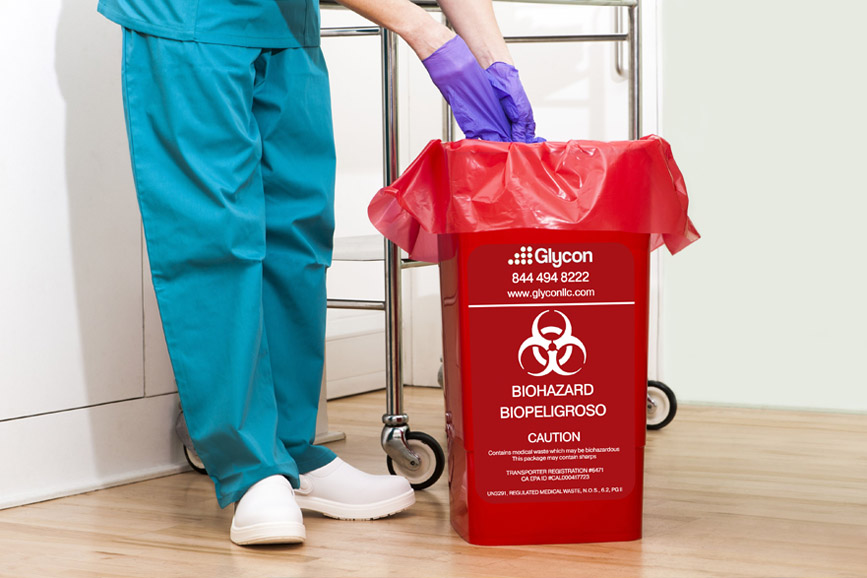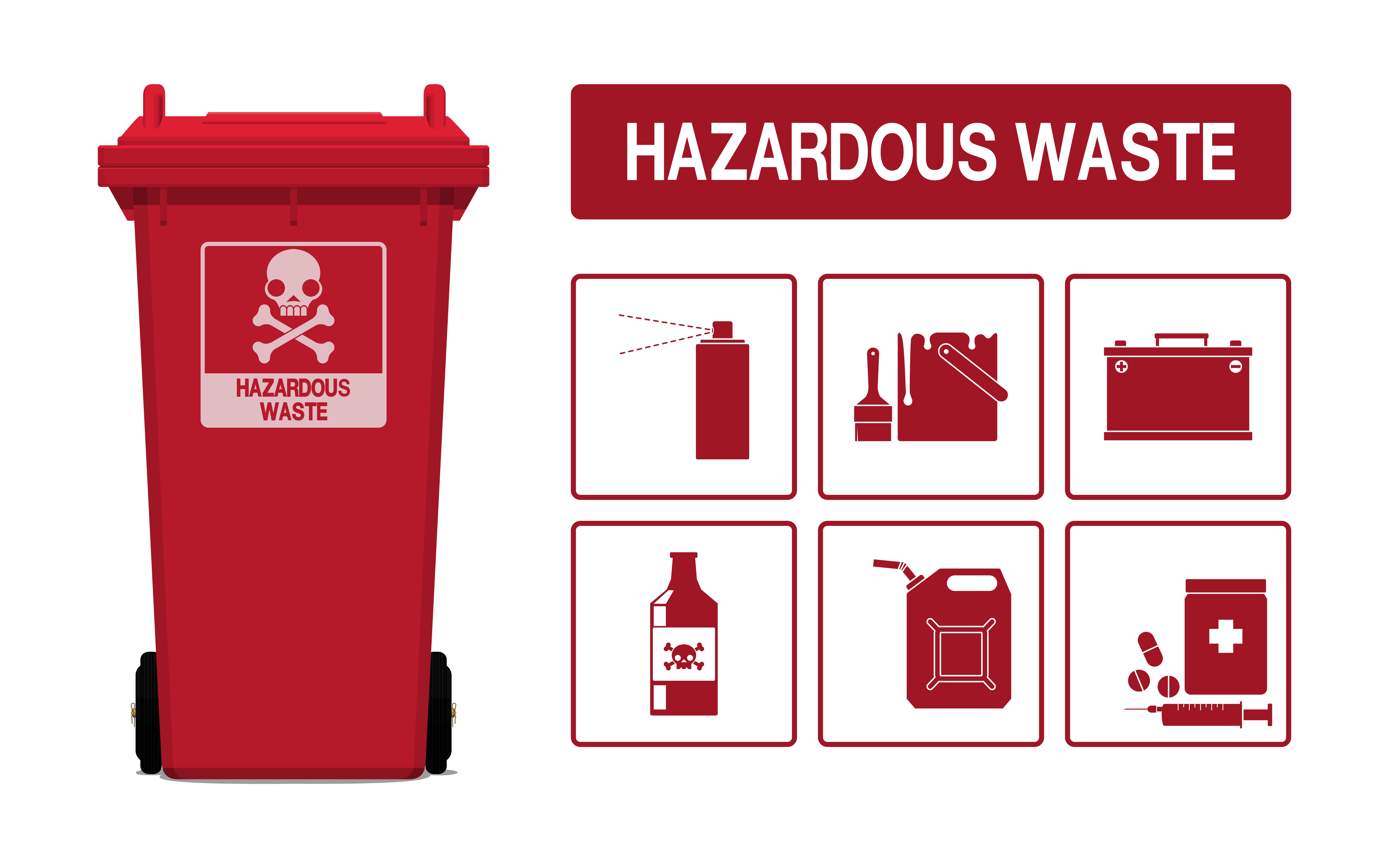Safeguarding Wellness: Expert Medical Waste Removal Services for a Clean Atmosphere
Safeguarding Wellness: Expert Medical Waste Removal Services for a Clean Atmosphere
Blog Article
Keep Ahead of Regulations: Expert Suggestions on Medical Waste Disposal
In a world where the medical care sector is continuously progressing, it is necessary for clinical centers to remain ahead of regulations when it comes to the correct disposal of medical waste. From recognizing the various categories of clinical waste to implementing the ideal collection and segregation approaches, this discussion will supply workable ideas and useful understandings to assist facilities stay in advance of policies in the ever-changing landscape of medical waste disposal.
Recognizing Clinical Waste Categories
Recognizing clinical waste classifications is vital for proper disposal and administration in health care centers. Medical waste describes any type of waste created by medical care tasks that may position a hazard to public health and wellness or the environment. It is essential to categorize clinical waste precisely to ensure its secure handling, transportation, disposal, and treatment.
There are a number of categories of clinical waste that medical care facilities need to be knowledgeable about. The most typical classifications include transmittable waste, pathological waste, sharps waste, pharmaceutical waste, and chemical waste. Each group has details standards and guidelines for its correct management and disposal.
Pathological waste refers to human tissues, organs, or body components that call for unique handling and disposal. Drug waste consists of expired, extra, or polluted medicines that require cautious handling and disposal.
Staying Up-To-Date With Regulatory Adjustments
Staying existing with regulative modifications is vital for health care centers to ensure conformity and proper monitoring of clinical garbage disposal. medical waste removal. With regulations regularly evolving, it is crucial for health care centers to stay up-to-date to avoid charges, fines, and potential damage to the environment and public health and wellness
To remain in advance of regulative changes, health care centers ought to develop a system for tracking and tracking updates. This can be done by registering for governing newsletters, attending seminars and workshops, and proactively joining sector organizations. Furthermore, centers ought to mark an employee or group in charge of remaining notified and sharing info to appropriate stakeholders.
Regular interaction with regulative companies is additionally essential. Medical care facilities should develop connections with neighborhood, state, and federal firms to ensure they understand any changes in guidelines that might affect their waste monitoring techniques. This can be done through regular conferences, engagement in public remark durations, and aggressive engagement with regulative firms.
Additionally, healthcare facilities should take into consideration partnering with waste management companies that specialize in clinical waste disposal (medical waste disposal services with WasteX). These firms are usually well-versed in the newest policies and can give guidance and support to make certain conformity
Executing Correct Collection and Segregation Methods
To successfully handle medical waste disposal, medical care centers need to develop correct collection and partition approaches based on governing standards. Carrying out these methods guarantees the risk-free handling and disposal of possibly harmful products, safeguards the atmosphere, and lessens the risk of injuries and infections to healthcare workers and the general public.
Proper collection and segregation methods include using designated containers and classifying systems. Health care centers should supply clearly classified containers for different sorts of medical waste, such as sharps, contagious waste, pharmaceutical waste, and why not try these out non-hazardous waste. These containers ought to be color-coded and clearly significant to prevent confusion and promote very easy recognition.
Furthermore, healthcare centers must train their staff on the correct treatments for gathering and segregating clinical waste. This consists of informing them on the different kinds of waste, the appropriate containers to use, and the significance of following laws and guidelines. Regular training sessions and refresher courses need to be performed to make sure that employee remain up-to-date on ideal practices.
Moreover, health care facilities need to develop a system for regular collection and disposal of medical waste. This may entail partnering with accredited waste administration business that concentrate on clinical waste disposal. These firms will certainly ensure that the collected waste is moved and taken care of in conformity with governing demands.
Selecting the Right Disposal Approaches

Incineration is one of the most usual and effective techniques for dealing with specific kinds of medical waste, such as pathological waste and sharps. It entails the regulated combustion of waste at heats, reducing it to ash. Incineration can launch hazardous toxins right into the air and contribute to air pollution.

Other disposal approaches include chemical treatment, microwave treatment, and landfilling. Chemical treatment involves making use of chemicals to counteract the waste and sanitize. Microwave treatment utilizes microwave energy to warm and disinfect the waste. Landfilling entails burying the waste in a marked landfill location (medical waste disposal services with WasteX). Nevertheless, landfilling needs to be the last resort because of the prospective threat of contamination to soil and groundwater.
Making Certain Conformity Via Documentation and Training
After carefully considering the suitable disposal techniques for medical waste, health care centers have to ensure compliance with guidelines and minimize environmental impact by carrying out reliable documentation and training treatments. This action is important in preserving a lasting and secure setting for both healthcare employees and the public.

Healthcare workers who deal with medical waste must obtain ideal training on waste partition, dealing with, and disposal procedures. By supplying thorough training, healthcare facilities can encourage their staff to make educated decisions and lessen the threat of incorrect waste disposal.
Verdict
Finally, staying in advance of guidelines in clinical garbage disposal is vital for more medical care centers. medical waste removal service. Comprehending the various groups of medical waste, staying upgraded with regulatory modifications, carrying out correct collection and segregation techniques, picking the appropriate disposal methods, and guaranteeing conformity via paperwork and training are all necessary actions. By complying with these standards, medical care organizations can successfully get rid of and manage of medical waste in a safe and accountable way
From comprehending the different categories of clinical waste to applying the ideal collection and segregation methods, this conversation will provide important insights and workable suggestions to assist centers stay in advance of regulations in the ever-changing landscape of clinical waste disposal. - medical waste disposal services with WasteX
The most typical groups include infectious waste, pathological waste, sharps waste, pharmaceutical waste, and chemical waste. Medical care facilities ought to give clearly labeled containers for various kinds of medical waste, such as sharps, contagious waste, pharmaceutical waste, and non-hazardous waste. Healthcare facilities ought to develop a comprehensive system to tape-record and track all facets of medical waste disposal, consisting of kinds of waste created, quantities, and disposal techniques utilized. Medical care employees that take care of clinical waste should get proper training on waste partition, dealing with, and disposal procedures.
Report this page